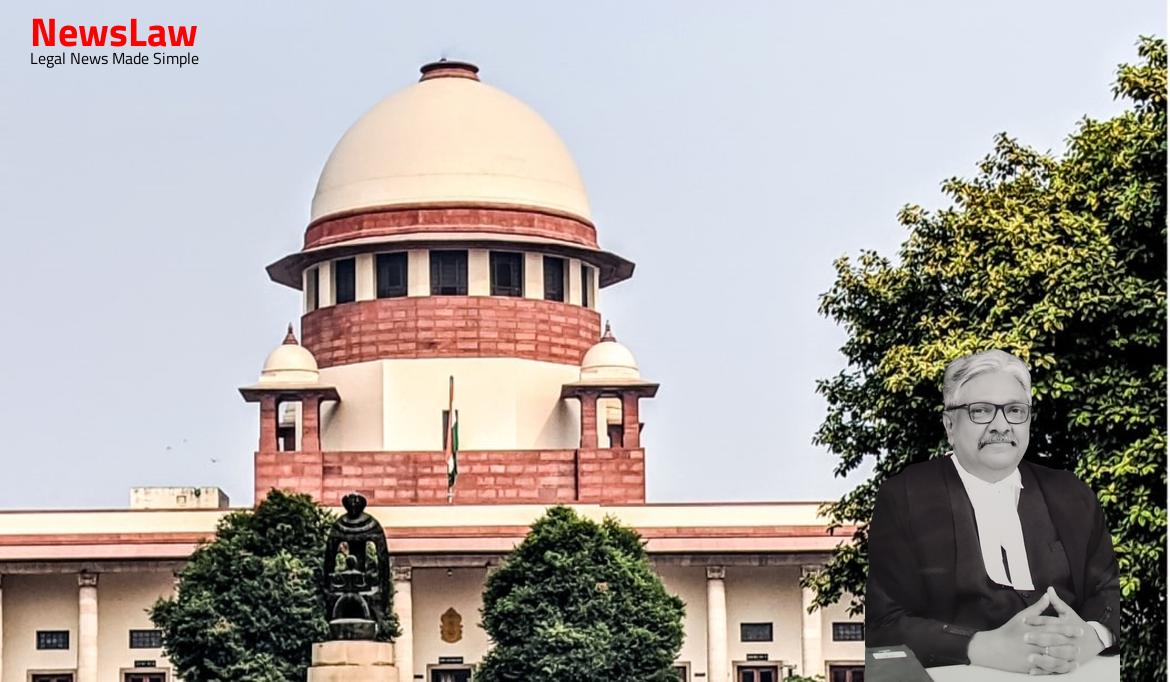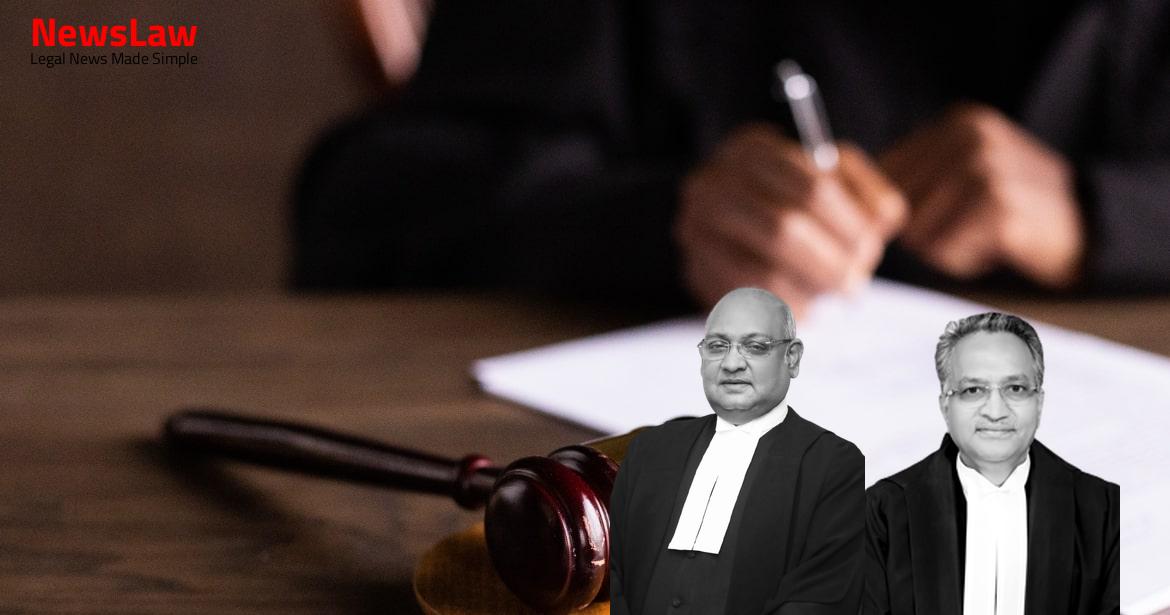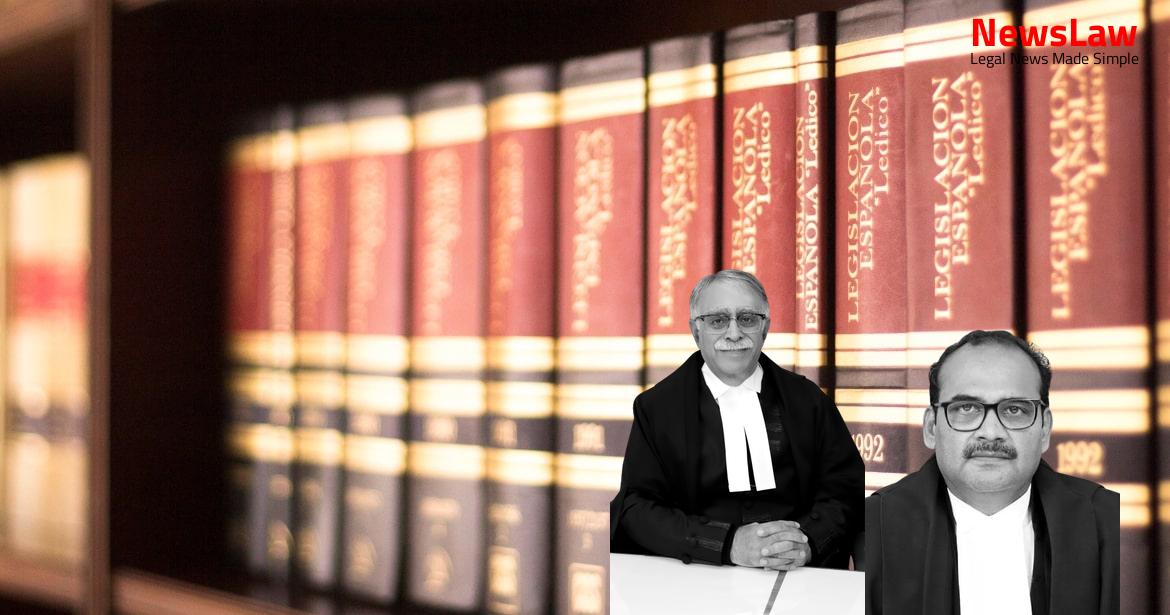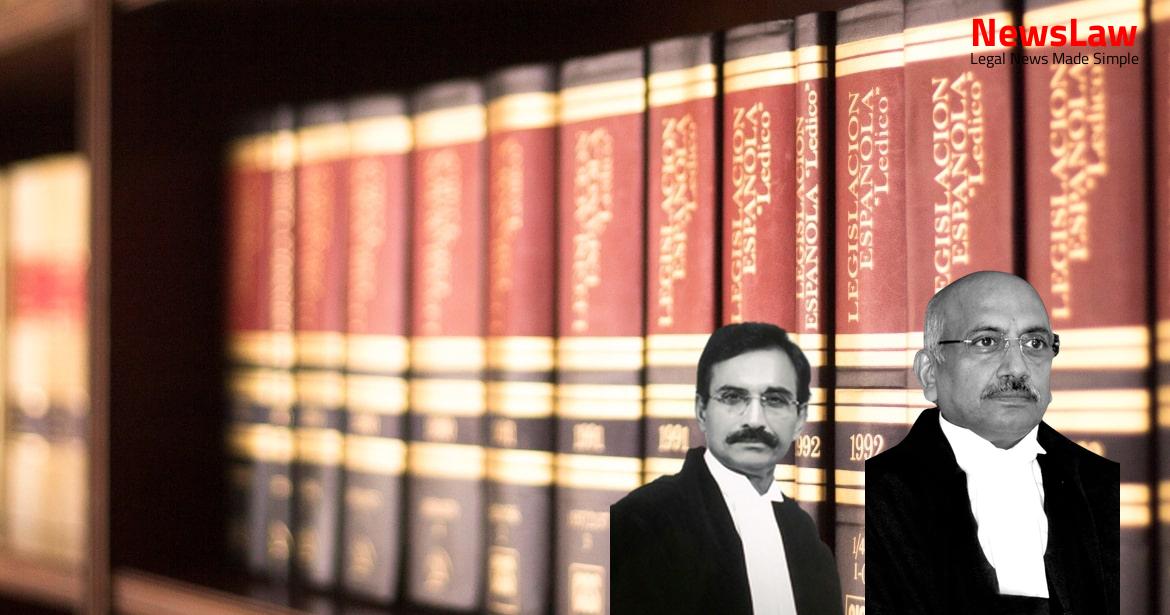The legal case delves into the crucial aspect of determining juvenility in criminal cases, highlighting the impact it has on court proceedings. Through a detailed legal analysis, the court affirmed the conviction based on substantive testimony while considering the juvenile status of one of the parties involved. The case sheds light on the complexities of the law regarding minors in criminal offenses, emphasizing the importance of adhering to legal provisions even amidst law changes.
Facts
- Ganeshram breathed his last within 2 to 3 hours after receiving treatment.
- Both lungs were found dry and contracted.
- Injuries on Ganeshram included cuts on both legs.
- Accused persons beat Ganeshram and threatened to kill him.
- Medical evidence revealed injuries and internal organ conditions.
- Surgical Specialist examined Ganeshram at District Hospital.
- Witnesses testified to the events and injuries inflicted on Ganeshram.
- Accused individuals were found armed during the incident.
- The incident involved abusive language and physical assault based on caste discrimination.
- Post-mortem examination revealed internal injuries and fractures.
- Various weapons were recovered based on the accused’s disclosure statements.
- Statements were recorded by investigating officer and witnesses.
- The Court conducted an inquiry into the issue of juvenility of one of the accused.
- Challenges regarding the victim’s memory loss and unconsciousness after the incident were highlighted.
- The trial and judgment were part of Special Offence Case No 88 of 1998.
- Appellants were convicted under Sections 302 read with 34 IPC and sentenced to life imprisonment with a fine.
- The High Court rejected the argument that the deceased could not have made a statement before the police leading to the FIR.
- Accused found not guilty under offences punishable under SC/ST Act.
- Accused Devilal and Gokul were released on bail after undergoing imprisonment for over nine years.
- Evidence on record, including the FIR and witness statements, upheld the conviction of accused Devilal, Gokul, and Amrat Ram while the fourth accused, Gattubai, was found not guilty.
- High Court affirmed the conviction and sentence of accused Devilal, Gokul, and Amrat Ram, dismissing their appeal in 2006.
Also Read: Electoral Malpractices in Mayor Election
Arguments
- The incident according to the FIR occurred around 8.00 p.m.
- The FIR was recorded after more than three hours.
- Cross-examination of PW9-Dr. Kothari raises doubts about Ganeshram’s ability to make a police report as alleged.
Also Read: Balancing Power and Transparency: Electoral Bonds Struck Down, Disclosure Mandated
Analysis
- The testimonies of PWs 1 and 2 are consistent, noting their presence from the initial stage of reporting the crime.
- There was minimal distance between the houses, allowing for effective witness accounts.
- The FIR was rightly relied upon as a dying declaration by Ganeshram.
- Satya Deo, being less than 18 years of age during the offense, is entitled to juvenile status under the 2000 Act.
- Amrat Ram’s case, if found guilty, should be remitted to the Juvenile Justice Board for appropriate fine determination.
- The assertion of tutored witnesses lacks substantial evidence and does not fully invalidate the testimony of PWs 1 and 2.
- Legal fictions in the law must be given full effect as per their limitations.
- The substantive testimony clearly implicates the appellants in the assault on Ganeshram leading to his death.
- The juvenile status affects the court jurisdiction and proceedings as per the law at that time.
- Proceedings in respect of a juvenile pending in any court on the date the Juvenile Act comes into force shall continue in that court as if the Act had not been passed.
- If the court finds the juvenile has committed an offense, instead of passing a sentence, the juvenile will be forwarded to the Board for appropriate orders.
- The determination of juvenility of a juvenile in pending cases will be in terms of Section 2, even if the juvenile ceased to be a juvenile before the Juvenile Act came into force.
- The Juvenile Act provisions apply as if they were in force for all material times when the alleged offense was committed.
- The court can set aside a sentence and forward the case to the Juvenile Justice Board for passing sentence in accordance with the Juvenile Act.
- Section 20 of the Juvenile Justice (Care and Protection of Children) Act, 2000 stipulates that if a person had ceased to be a juvenile under the 1986 Act but had not yet turned 18 at the time of the passing of the 2000 Act, then the pending case shall continue in that court as if the 2000 Act had not been enacted.
- The court, in such cases, must forward the juvenile to the Juvenile Justice Board for appropriate orders rather than passing a sentence itself.
- Legal fiction under the Act allows for individuals above juvenile age to be treated as juveniles for sentencing purposes by the Board, addressing the discrepancy between the 1986 and 2000 Acts.
- The repeal of the 2000 Act does not affect the determination of juvenility after conviction if it was found acceptable in an inquiry conducted under the Act.
- The principles regarding juvenility were affirmed in various cases, including those mentioned in the judgment like Satya Deo alias Bhoorey v. State of Uttar Pradesh and Hari Ram v. State of Rajasthan.
- Testimony of PW1-Sajan Bai is not considered
- Deposition of PW2-Saman Bai and dying declaration of Ganeshram are crucial evidence against appellants
- Recoveries of weapons, including lathi, sword, and axe, provide corroboration to prosecution’s case
- Courts below found the appellants guilty and this decision is affirmed
Also Read: Recall of Resolution Plan Approval: Legal Analysis
Decision
- The conviction and sentence of Devilal and Gokul are affirmed, and their appeal is dismissed.
- An order has been issued for the immediate transmission of the Order to the jurisdictional Chief Judicial Magistrate and the concerned Police Station.
- Devilal and Gokul are directed to surrender before the concerned Police Station within two weeks, failing which their bail bonds will be forfeited, and they will be arrested to undergo the sentence.
- Appellant Amrat Ram is found to be juvenile and guilty of the offence, but the life imprisonment sentence imposed on him is set aside.
- The matter is remitted to the Juvenile Justice Board for determining the appropriate quantum of fine to be levied on Amrat Ram.
- Devilal and Gokul were released on bail earlier by the Court.
Case Title: DEVI LAL Vs. THE STATE OF MADHYA PRADESH (2021 INSC 118)
Case Number: Crl.A. No.-000989-000989 / 2007



